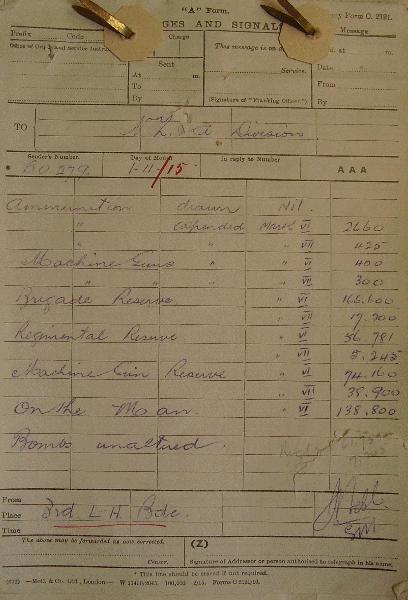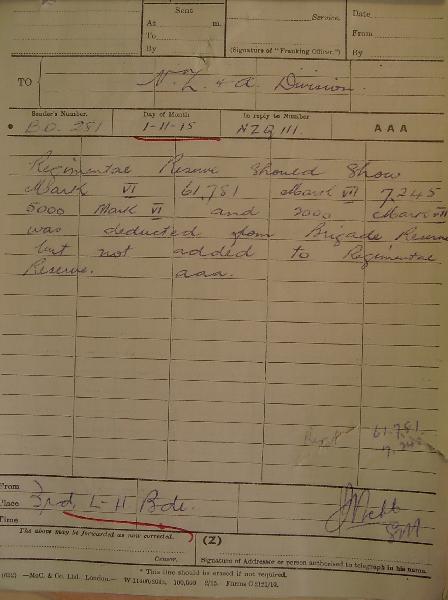Topic: AIF - 3B - 3 LHB
It may have been war and there may have been men dying in all manner of hideous deaths, but the accountants required their indents to be properly balanced. When a Regiment took over part of a trench line, all items employed by the men were usually removed by them and maintained on the Regimental asset register. Ammunition was slightly different. It was not wise to remove ammunition from the reserves while there was a change in trench deployment. Even the flinty hearted government accountants could see the danger involved. In a compromise to ensure safety as well as keeping the books balanced, ammunition was counted prior to hand over. The regimental adjutant would give a summary down to the last bullet and bomb of the ammunition holding at the trench. Once this was ascertained, then the incoming adjutant would sign a declaration that the reconciliation was accurate and take control of the ammunition.
The first signal, sent from Colonel Antill, the action GOC of 3rd LHB to General Godley, the GOC of the New Zealand and Australian Division. Antill is detailling the Brigade ammunition stocks as at 1 November 1915.

Since there were new models of the humble .303 bullet, the aim was to expend stocks of the older Mark VI ammunition while holding onto stocks of the newer Mark VII ammunition.
If the adjutant of the 3rd LHB thought his work was done, he was mistaken. An error in the summary was detected at Divisional Headquarters leading to a signal being sent to the adjutant of 3rd LHB with a "please explain" request. While the incoming signal is lost, the reply still exists. The frustration oozes from the words.

There was a spare 2,000 bullets which could not be accounted for from the Divisional Headquarters figures and the answer was urgently required. The missing 2,000 rounds had not been added to the Regimental reserve. The accountant at Divisional Headquarters could breath easy knowing that the bullets had not disappeared through theft nor had been frivolously wasted by firing at the Turks.
Many examples exist of Commanders receiving rude and urgent queries about their expenditure of ammunition. If the ammunition consumption spikes upwards, the GOC could always rely upon a demand for an ammunition audit. An army may have travelled on its stomach but it survived on paper.
Citation: 3rd LHB Signals about Ammunition, 1 November 1915



